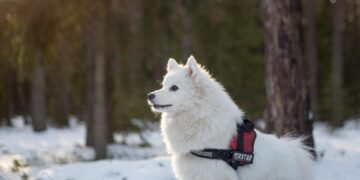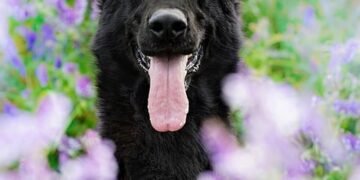Unleashing the Power of the Little Beast: A Guide to Training and Loving Your Small Dog
Small dogs may be pint-sized, but they are packed with personality and energy. While they have their own unique challenges, training and loving a small dog can be a rewarding experience for both you and your furry friend. In this comprehensive guide, we will cover everything you need to know to unleash the power of your little beast.
Why Small Dogs?
Small dogs are often favored by pet owners for their compact size, making them ideal for apartment living or for those who have limited space. Additionally, small dogs are known for their playful and affectionate nature, making them great companions for families, seniors, or anyone looking for a loyal friend.
Training Your Small Dog
Training a small dog is no different from training a larger breed, but there are a few key differences to keep in mind. It’s important to establish yourself as the leader of the pack early on, as small dogs can develop behavioral issues if they feel they are in charge. Consistency is key when it comes to training, so be sure to set clear boundaries and stick to them.
Socialization
Socialization is crucial for small dogs, as they can be prone to anxiety or aggression if they are not exposed to different people, animals, and environments. Start socializing your small dog from a young age by taking them to puppy classes, dog parks, and on walks around the neighborhood. This will help them feel more comfortable in various situations and reduce their chances of developing behavioral issues.
Potty Training
Potty training is one of the most challenging aspects of owning a small dog, but with patience and consistency, it can be done. Take your small dog outside regularly and praise them when they go to the bathroom in the appropriate spot. Consider using a pee pad or litter box indoors as a backup plan, especially if you live in a high-rise building or have limited access to outdoor space.
Building a Strong Bond
Building a strong bond with your small dog is essential for a harmonious relationship. Spend quality time with your furry friend through playtime, walks, and training sessions. Be patient and understanding, and always show your small dog love and affection. Small dogs thrive on praise and positive reinforcement, so be sure to shower them with attention when they exhibit good behavior.
Exercise and Mental Stimulation
Small dogs may not need as much exercise as larger breeds, but they still require daily physical activity to stay healthy and happy. Take your small dog on regular walks, play fetch in the backyard, or engage in interactive games like tug-of-war or hide-and-seek. Additionally, provide your small dog with mental stimulation through puzzle toys, obedience training, or scent games to keep their minds sharp and engaged.
Grooming and Care
Small dogs often have specific grooming needs, such as regular brushing to prevent mats and tangles in their fur. Depending on the breed, you may also need to trim their nails, clean their ears, or brush their teeth on a regular basis. Establish a grooming routine early on to keep your small dog looking and feeling their best.
Common Small Dog Breeds
There are a variety of small dog breeds to choose from, each with their own unique characteristics and personalities. Some popular small dog breeds include Chihuahuas, Pomeranians, Dachshunds, and Yorkshire Terriers. Research different breed profiles to find the perfect small dog that matches your lifestyle and preferences.
Chihuahua
Chihuahuas are one of the smallest dog breeds, known for their bold and sassy attitude. They are loyal and affectionate companions but can be wary of strangers. Chihuahuas are often seen as lap dogs and thrive on attention and affection from their owners.
Pomeranian
Pomeranians are fluffy and playful small dogs, known for their outgoing personalities and intelligence. They are energetic and love to play, making them great companions for active individuals or families. Pomeranians require regular grooming to maintain their fluffy coats.
Dachshund
Dachshunds, also known as wiener dogs, are characterized by their long bodies and short legs. They are friendly and loyal dogs, but can be stubborn at times. Dachshunds require regular exercise to keep them healthy and prevent weight gain, as they are prone to obesity.
Yorkshire Terrier
Yorkshire Terriers, or Yorkies, are small dogs with big personalities. They are confident and independent, but also loving and affectionate towards their owners. Yorkies have a silky coat that requires regular grooming to prevent matting and tangling.
Conclusion
Small dogs may be little in size, but they have big hearts and personalities that make them wonderful companions. By training, loving, and caring for your small dog, you can unleash their full potential and build a strong bond that will last a lifetime. Remember to be patient, consistent, and understanding with your furry friend, and you will both enjoy many happy years together.
Whether you have a Chihuahua, Pomeranian, Dachshund, Yorkshire Terrier, or any other small dog breed, the key to success lies in nurturing a positive and loving relationship. By following the tips and advice outlined in this guide, you can unleash the power of your little beast and create a fulfilling and rewarding experience for both you and your furry friend.














































